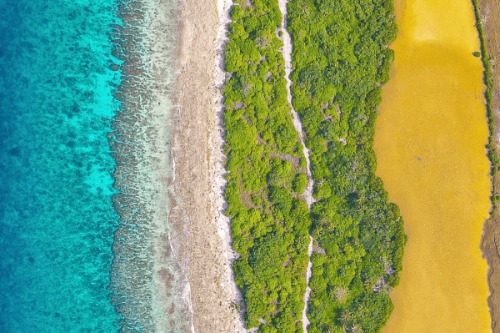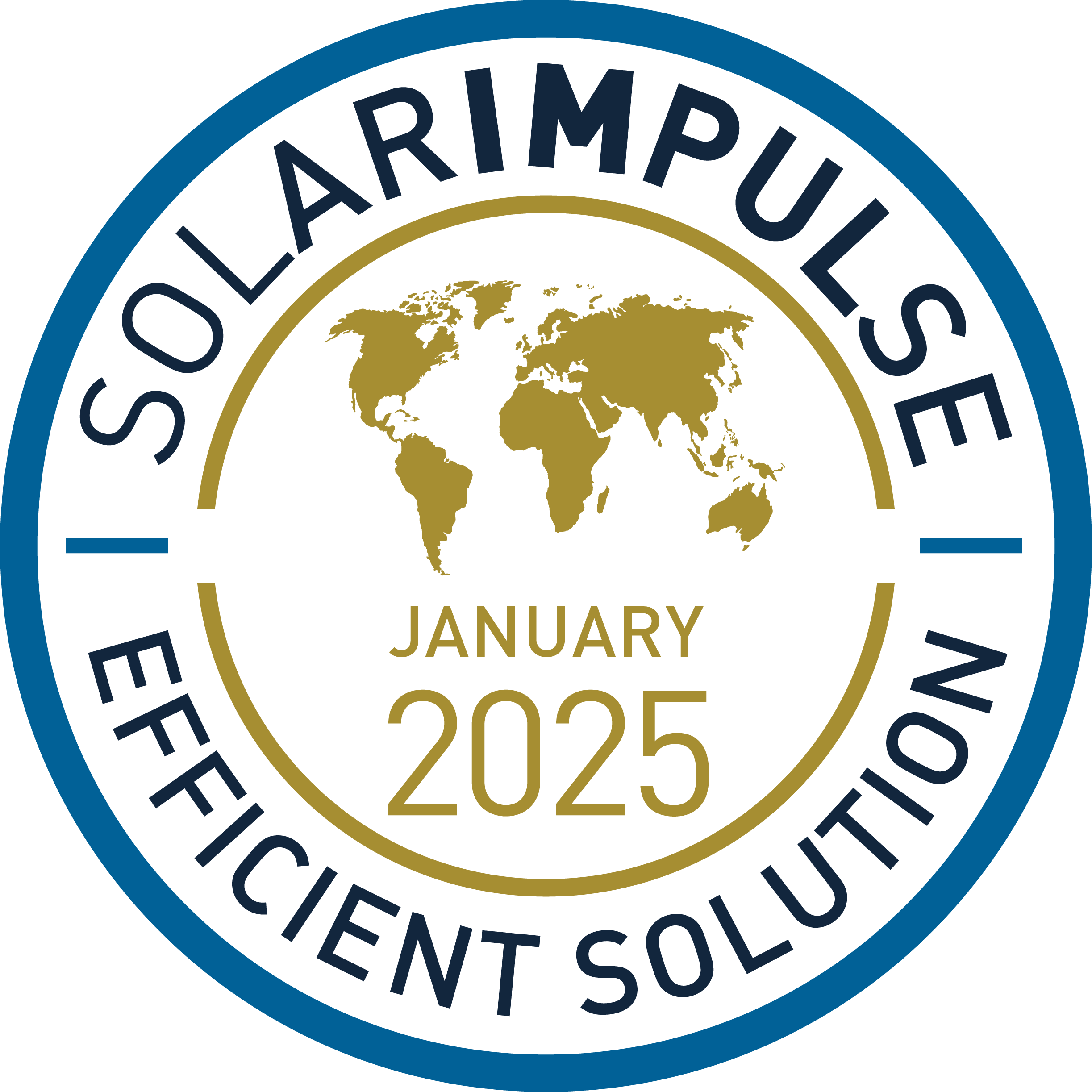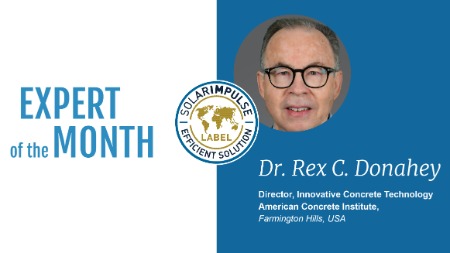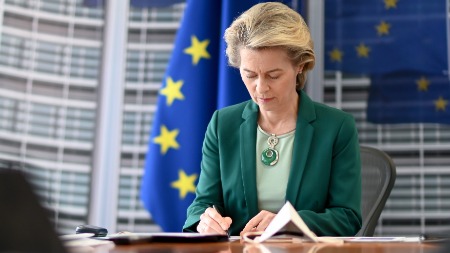Interviews - August 12, 2025
Meeting Jean-Christophe Vautrin: Solar Impulse Foundation Expert
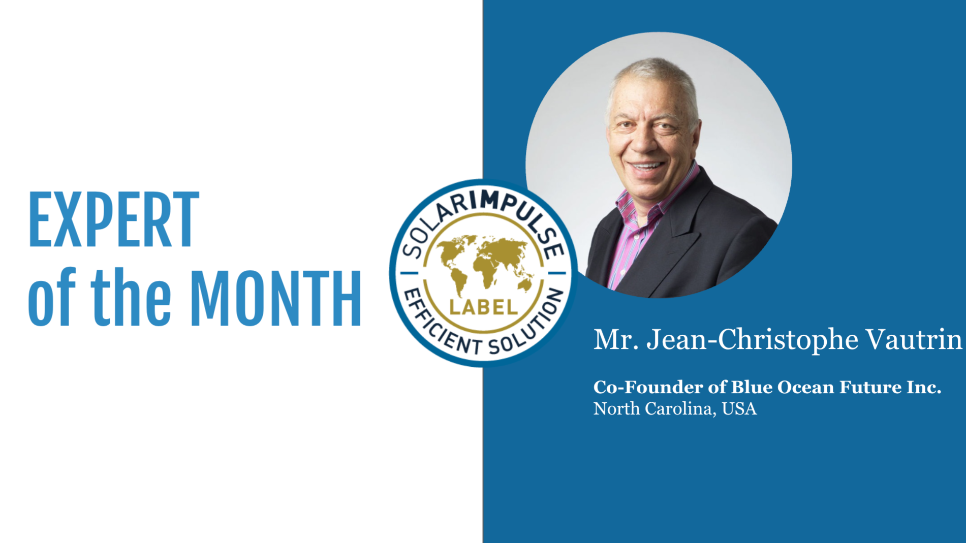
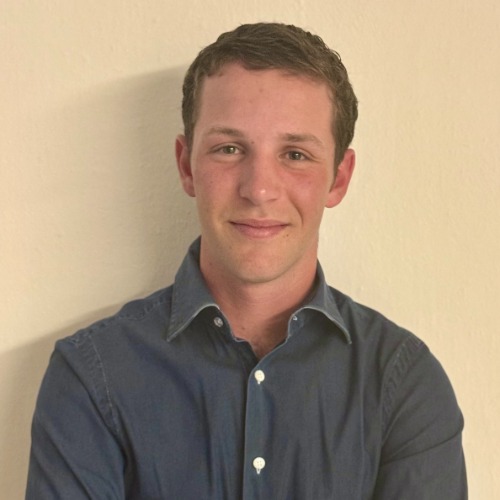
Written by Léon Pieyre 5 min read
Jean-Christophe Vautrin; Solar Impulse Foundation Expert
When a company applies to have its solution recognised with our Efficient Solution Label, we require professionals that will determine the validity of the request. This service is provided by independent experts – fuelled by a passion for sustainable innovation and backed by years of technological expertise.
We sat down with one of our experts; Jean-Christophe Vautrin, Co-Founder of Blue Ocean Future and a leading specialist in marine, ocean, and shipping sectors. He talked us through his career, what motivated him to become an expert for the Solar Impulse Foundation and the lessons he has taken from his first solution assessment.
I have seen investigative analyses which show that in fact, within boards, in the group of companies, you only have 16% of executives or CEOs who understand what is at stake with sustainability.
Mr. Vautrin, would you mind enlightening us on your professional career ?
I started in the energy business, working in oil downstream – from refining all the way to the gas stations where people refuel. I really liked it because I learned a lot. As a first profession, it was very geopolitically oriented. I then focused on finance projects for energy before converging to the backing of projects for waste management.
Finally, I started developing my consulting activities for the environment.I educated myself in all aspects of sustainability in organisations, start-ups, and industry – and worked to bridge the gap between the industrial or financial world and the natural world, which often operate in isolation from one another.
As I have also been in executive positions as CEO of an energy company I can put my foot in both shoes and bring my advice to businesses that do not know enough about sustainability. I have seen investigative analyses which show that in fact, within boards, in the group of companies, you only have 16% of executives or CEOs who understand what is at stake with sustainability. That is why I am trying to say that sustainability is not an expense, but an investment.
With this investment, you will mitigate your risks and increase your profitability, because you measure, and you can only correct what you can measure. I try to make them understand that if the organisation does not adapt to all these constraints, whether legislative or from customers, they will not survive.
The result of a poll analysing risks for companies published by Allianz revealed that 6 out of 10 risks were related to the environment; supply chain disruption, floods,… Even if you don't like the idea, it is a main subject today. That is why we must help the people who are trying to find solutions to mitigate climate change. We are beyond 6 of the 9 planetary limits and on the verge of breaching the 7th – we are in an emergency situation.
First of all, it was not a revolution, but an evolution. It was a slow process. Sustainability is something that was not very common, even two decades ago, even five years ago. If you look at LinkedIn, we talk a lot more about sustainability than we did three years ago, before COVID.
What motivated you to transition from the oil industry to green business ?
First of all, it was not a revolution, but an evolution. It was a slow process. Sustainability is something that was not very common, even two decades ago, even five years ago. If you look at LinkedIn, we talk a lot more about sustainability than we did three years ago, before COVID.
Somehow, I loved the first part of my career. In finance and energy, I learned a lot of things that are useful to me now. However, I have had a passion for the oceans for a long time; I did my first dive in a swimming pool with a member of the Cousteau Society.
I was also very concerned about deforestation because I grew up in Western Africa where they transformed the primary forest into a pineapple, coffee, and coconut plantation – devastating everything. I am also an extensive traveler, so I have seen the devastation of nature caused by human activities.
There is so much we can still do – not to stop climate change entirely, as it’s too late for that, but to mitigate its effects and address the many other factors that are pushing the limits of our planet’s boundaries. Ocean acidification, for example. So, what can we do? There are countless low-hanging fruits – simple, practical steps that organisations can take right away.
One of the main drivers for me was the fact that I had a very strong response from young people, because I have also teached in different business schools in Switzerland. I saw that there was a lot of interest.
The combination of all these factors led to my conversion. I then co-founded a company that is involved in the measurement and adaptation of sustainability, especially for oceans and coastlines: Blue Ocean Future. The ocean is 70% of the surface of our planet: I have enough work for the next 2,000 years because all projects are related to the ocean ! This is also where there is a link with the oil industry I come from, as I started by working on a traceability system for ships' waste and on vessel optimisation projects. I was later approached to evaluate solutions and determine whether they could be labelled by the Solar Impulse Foundation.
You can only improve what you can measure. I try to get the most objective vision – not only on the technical side, but also on the social and financial impact.
Could you tell us about your experience with the Solar Impulse Foundation and on the solutions that you were assigned to ?
I like these experiences because if I want to give an informed opinion, I also need to enhance my knowledge in particular areas. Sometimes, there are so many things that are related to the ocean that you can have a multitude of different problems:
I was first asked to review a solution aiming to transform sargassum. Sargassum is a major disaster in the Caribbean islands because it is a health risk and also a problem for tourism. In these countries, a lot of people live off tourism. With the invasion of sargassum, it's a real threat to this population. Sargassum is a complicated product, full of toxic parts, arsenic and heavy metals. You can't just dump it in a landfill site because there are too many toxins in this product. The idea was to turn the sargassum into a high-value fertiliser. Although I already knew about sargassum beforehand, I studied scientific articles concerning the different ways to treat sargassum to determine what was suitable for this particular case.
It was a very interesting subject. I like to be given diverse assignments because it enlarges my knowledge of the ocean as a whole. I really enjoy these projects but they require commitment and time.
You can only improve what you can measure. I try to get the most objective vision – not only on the technical side, but also on the social and financial impact. This can sometimes be hard to grasp for young entrepreneurs or start-ups; you can be a scientist and not have real education in finance and management. There are so many promising companies, I think that helping them or giving them feedback in any of these areas can help them survive and thrive.
I would say listen, listen, listen, because you need to listen to your stakeholders. You can invent the best solution or product but if people don't want it, it won’t fly.
To conclude our discussion, is there any advice, a quote, or a principle you follow that you would want to share with our lecturers ?
I would say listen, listen, listen, because you need to listen to your stakeholders. You can invent the best solution or product but if people don't want it, it won’t fly.
The second part, the opposite or the complement of the first one: explain, explain, explain. The technical solution is only one part of the whole process. I think this is the challenge for young entrepreneurs, especially when they want to develop a technology. They are very familiar with this technology, but they have to understand that the rest of the crowd is not familiar with it – or may not be. Therefore, communicate and look at the numbers. This is what I recommend to young entrepreneurs.

Written by Léon Pieyre on August 12, 2025
